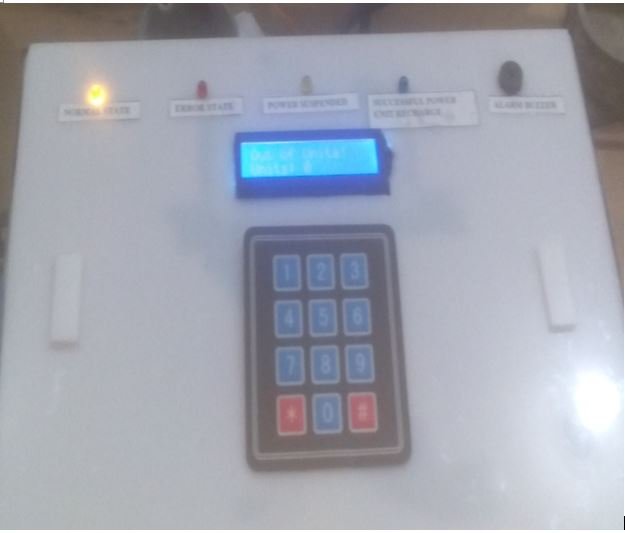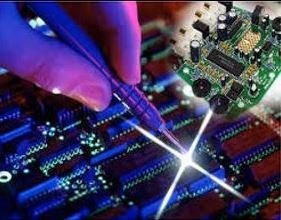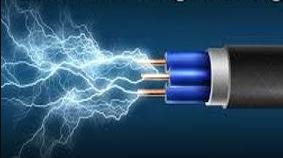# Smart Metering System
Hi Steemians!
Here is a piece for you to grow your love in electronics.
The Fun with Electronics
Everyone uses electronic devices, but most of us don’t really know what goes on inside them.
Of course, you may feel that you don’t need to know. If you can drive a car without understanding the workings of an internal combustion engine, presumably you can use an iPod without knowing anything about integrated circuits. However, understanding some basics about electricity and electronics can be worthwhile for three reasons:
- By learning how technology works, you become better able to control your world instead of being controlled by it. When you run into problems, you can solve them instead of feeling frustrated by them.
- Learning about electronics can be fun—so long as you approach the process in the right way. The tools are relatively cheap, you can do all the work on a tabletop, and it doesn’t consume a lot of time (unless you want it to).
- Knowledge of electronics can enhance your value as an employee or perhaps even lead to a whole new career.
Trust me it won’t be a boring ride. Just get into the flow and have fun with electronics as we journey to making an electronic device together. You will love the experience.
Learning by Discovery
I believe the process of learning by discovery creates a more powerful and lasting experience. So I will love you to start putting components together right away. After you see what happens, you will figure out what is going on. Hope you are excited.
Learning by discovery occurs in serious research, when scientists notice an unusual phenomenon that cannot be explained by current theory, and they start to investigate it in an effort to explain it. This may ultimately lead to a better understanding of the world.
We`re going to be doing the same thing, although obviously on a much less ambitious level.
Along the way, you will make some mistakes. This is good. Mistakes are the best of all learning processes. I want you to burn things out and mess things up, because this is how you learn the limits of components and materials.
Since we will be using low voltages, there will be no chance of electrocution, and so long as you limit the flow of current in the ways I will describe, there will be no risk of burning your fingers or starting fires.
How Hard Will It Be?
In Life nothing is hard when we set our mind to purse it with an intent to achieve a result. Though certain prior knowledge will be required, but it should not be a factor to chase you away from this fun ride of productivity.
For this project I want to assume that you have prior knowledge
- Using Circuit board
- Soldiering techniques
- Arduino programming
- C++ programming
- Proteus 8 Professional
If you don’t have the basic knowledge in any of the above listed requirement, no need to panic just follow the link on any of the subject to get a quick guide and overview of the subject. Trust me you will be glad you did.
So let’s dive straight into our proposed project.
Project Overview
In this series, we will be having fun with the art of electronics to produce an electric metering system for instantaneous voltage and current measurement when power consuming devices are connected to the system output.
Arduino ATmega2560 microcontroller will be used to calculate the power consumed, which will be displayed on an LCD while the same values can be sent on request to our smart phone. For short proximity the HC-06 Bluetooth will be used to connect to your mobile device while SIM900A module will be used for the long distance wireless communication.
The SIM900 GSM/GPRS Module are designed to operate within the SIM900A embedded Powerful TCP/IP protocol stack and support the unique needs of low-cost and low-power wireless sensor networks. The modules require minimal power and provide reliable delivery of data between remote devices.

A Quick glance at our targeted result
The series on this project will come up with interesting and engaging episodes as follows:
Episode one will cover the project design which comprises of the block diagram design, circuit design and the step by step procedure on how to use proteus 8 professional to produce your own version of the circuit diagram.
Episode two will deal with the project firmware. It will launch us into creating and understanding the system from the flow chart we will develop. In this episode we will develop the C++ code for the Arduino micro-controller operation and we will have fun with side attraction of a recharge generating unit for our system so as to simulate our project as a billing electric meter.
Episode Three will be an active episode in relation to working on our hardware. Here we will learn and use the various components that will bring our project to reality. We will be working on soldering and testing of our project basic functionality.
Episode four will cover the external communication incorporation. This episode will deal with the coding and implementation of the Bluetooth and SIM module component into our project for data communication over long and short distance.
Software requirement for this project will include: Proteus 8 Professional, Arduino and CodeBlocks.
This project is open to creative suggestions. So if you have any idea that can be incorporated into the project kindly drop a comment in regards to that and it will be considered.
Share with your friends and fellow lovers of electronics while we await the release of the first episode.
Please do share your thought and views


